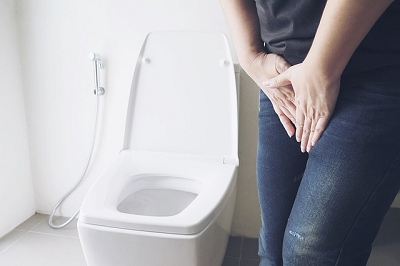Why Join the "Susceptible Population" for Urinary Tract Infections?
Urinary tract infections(UTIs) are a common ailment of the urinary system, and many patients often ask: "Why do I have a urinary tract infection? Why do I belong to the susceptible population for UTIs?"

UTIs do not strike indiscriminately but tend to target infants, older adults, and adult females. Especially in adult females, there is a 60% chance of experiencing at least one urinary tract infection in their lifetime. This is because their urinary tract is shorter, making it easier for bacteria to invade.
Apart from the specific groups mentioned above, other groups with certain habits or conditions also tend to become susceptible populations for urinary tract infections.
1. Holding Urine Frequently:
Due to busy work schedules, many people hold their urine and delay going to the bathroom. This behavior allows urine to remain in the bladder for too long, providing a breeding ground for bacteria.
2. Lack of Hydration:
Some individuals dislike drinking water or fail to consume enough fluids, especially during hot weather or when sweating heavily. This leads to inadequate flushing of the urinary system and increases the risk of infection. Sufficient water intake helps eliminate bacteria through urine, reducing the likelihood of infection.
3. Urinary Obstructions:
Conditions such as urinary stones, tumors, strictures, benign prostatic hyperplasia (BPH) in males, prostatitis, or phimosis can cause urinary flow obstruction, making it easier for bacteria to multiply in the bladder and trigger infections. Timely treatment of these underlying conditions is crucial for preventing urinary tract infections.
4. Diabetes:
Due to high blood sugar levels and weakened immune systems, individuals with diabetes are more susceptible to various bacterial infections, including urinary tract infections. Therefore, diabetic patients need to pay special attention to blood sugar control and personal hygiene to prevent infections.
5. Partner with Urinary Tract Infection or Prostatitis:
Female patients who experience recurrent urinary tract infections should check if their partners have prostatitis or urinary tract infections. If the partner has an infection issue, both partners need to undergo treatment together to prevent mutual transmission and recurrent infections.
6. Long-term Indwelling Catheter Use:
Long-term use of indwelling catheters increases the risk of urinary tract infections. Catheters provide a direct pathway for bacteria to enter the bladder, so they should be avoided as much as possible, or strict aseptic techniques and care should be observed during catheterization.
7. Weakened Immune System:
Individuals with high work stress, irregular lifestyles, poor dietary habits, lack of exercise, and frequent colds have weakened immune systems, making them more prone to urinary tract infections. Maintaining good lifestyle habits and strengthening the body can help prevent various infectious, including urinary tract infections.
With so many risk factors contributing to UTIs, what steps can we take to avoid becoming part of the susceptible population?
1. Regular Lifestyle and Physical Health:
Maintaining a healthy lifestyle is crucial for preventing urinary tract infections. Regular exercise boosts physical fitness and enhances immunity, and avoiding staying up late or overexerting helps maintain the normal function of the immune system.
2. Good Hydration Habits:
Hydration is key. Cultivating the habit of drinking enough water daily increases urine volume, flushes the urinary tract, and promotes the elimination of bacteria and toxins, effectively preventing urinary tract infections.
3. Maintain Good Hygiene:
Women should pay special attention to keeping the external genitalia clean during menstruation, pregnancy, and postpartum periods. Opt for showers over baths whenever possible, wash the external genitalia before and after sexual intercourse, and urinate after intercourse to reduce the risk of bacteria entering the urethra.
4. Correct Urination Habits:
Develop the habit of urinating promptly when feeling the urge, avoid holding urine, and maintain regular bowel movements through dietary adjustments and moderate exercise to prevent constipation and pressure on the bladder.
5. Precautions During Treatment:
During treatment for urinary tract infections and for one week after recovery, avoid sexual intercourse and strictly follow medical advice to take medication on time to ensure complete recovery and prevent the recurrence of infection.
By cultivating good lifestyle and hygiene habits and taking multiple measures, we can effectively reduce the risk of urinary tract infections and maintain the health of the urinary system. If a UTI has already occurred or recurs frequently, patients can take Diuretic and Anti-inflammatory Pill for targeted treatment without causing any side effects.
Recommended Readings:
How Can Men Prevent Urinary Tract Infections? Follow Six Tips!
Is Foamy Urine the Precursor of Urinary Tract Diseases?
Dangers of Urinary Tract Infections in Men: Using Herbal Remedies to Treat Naturally



